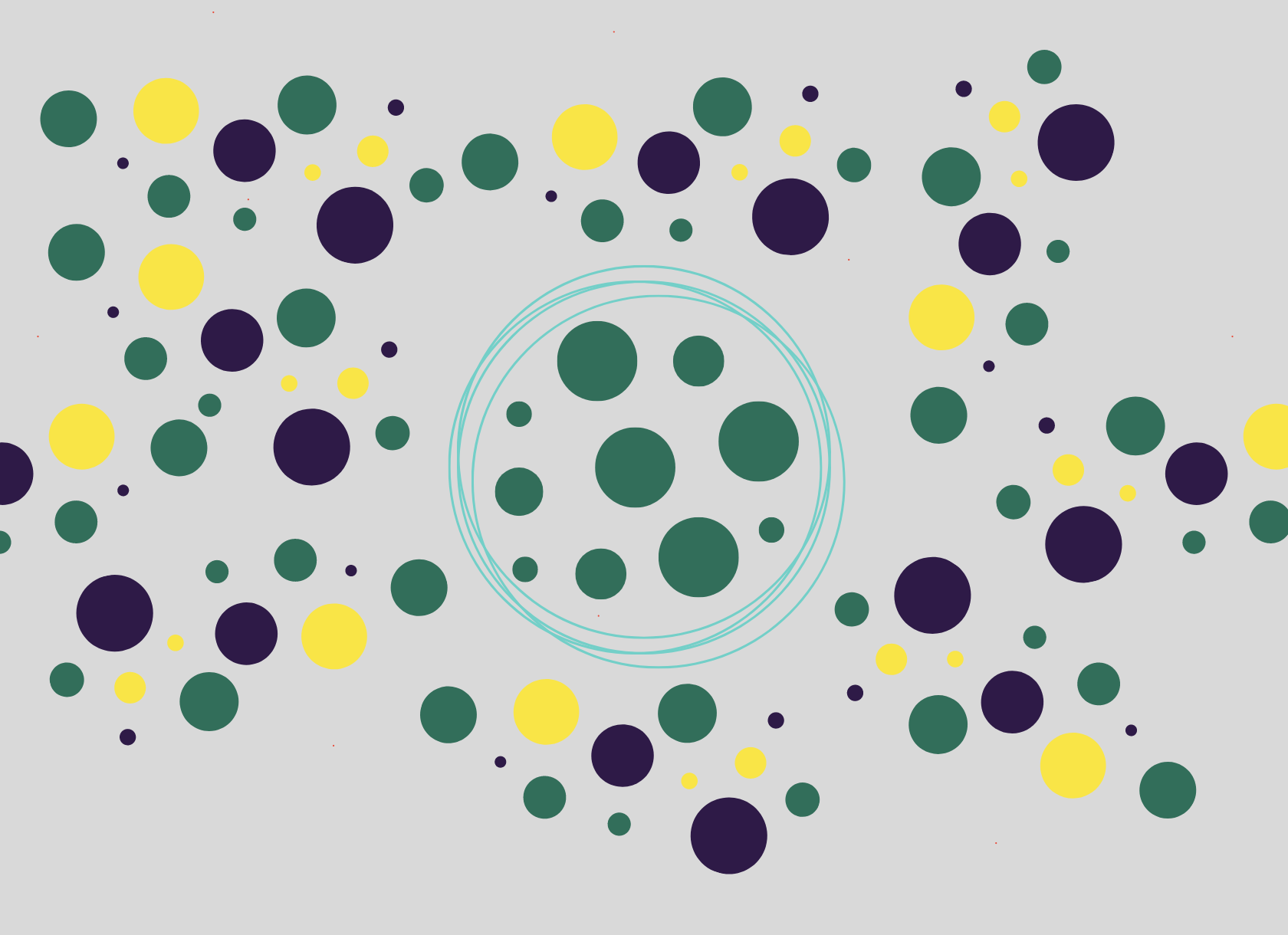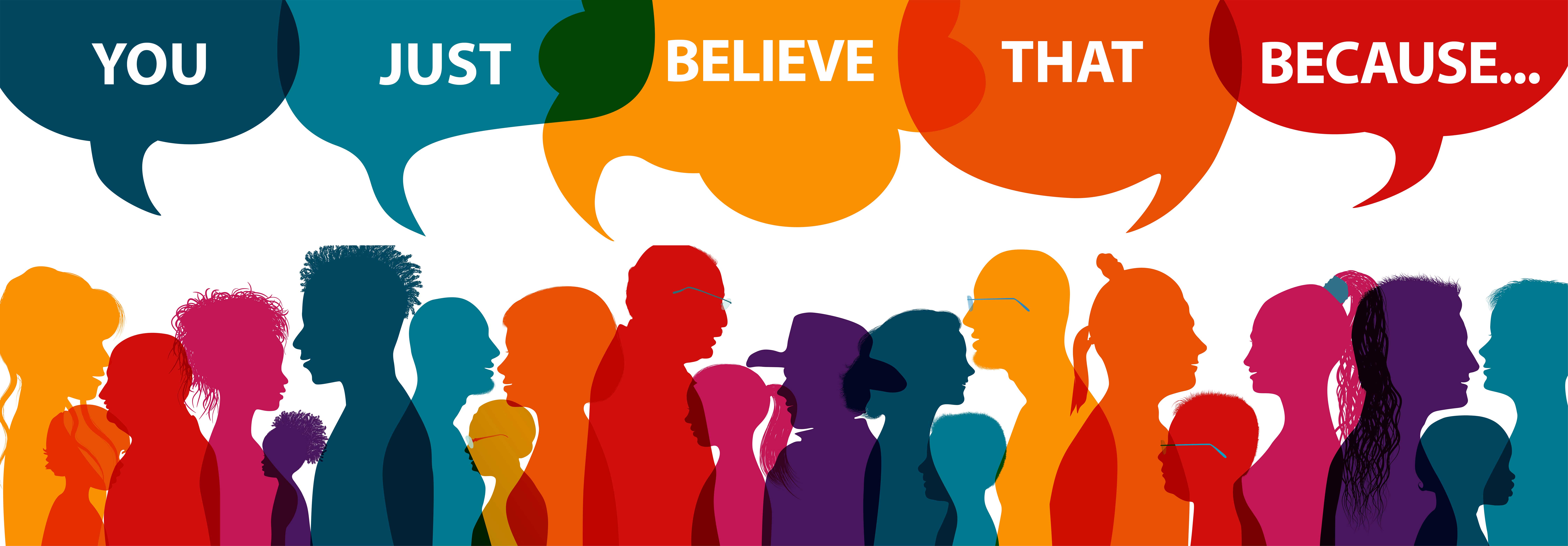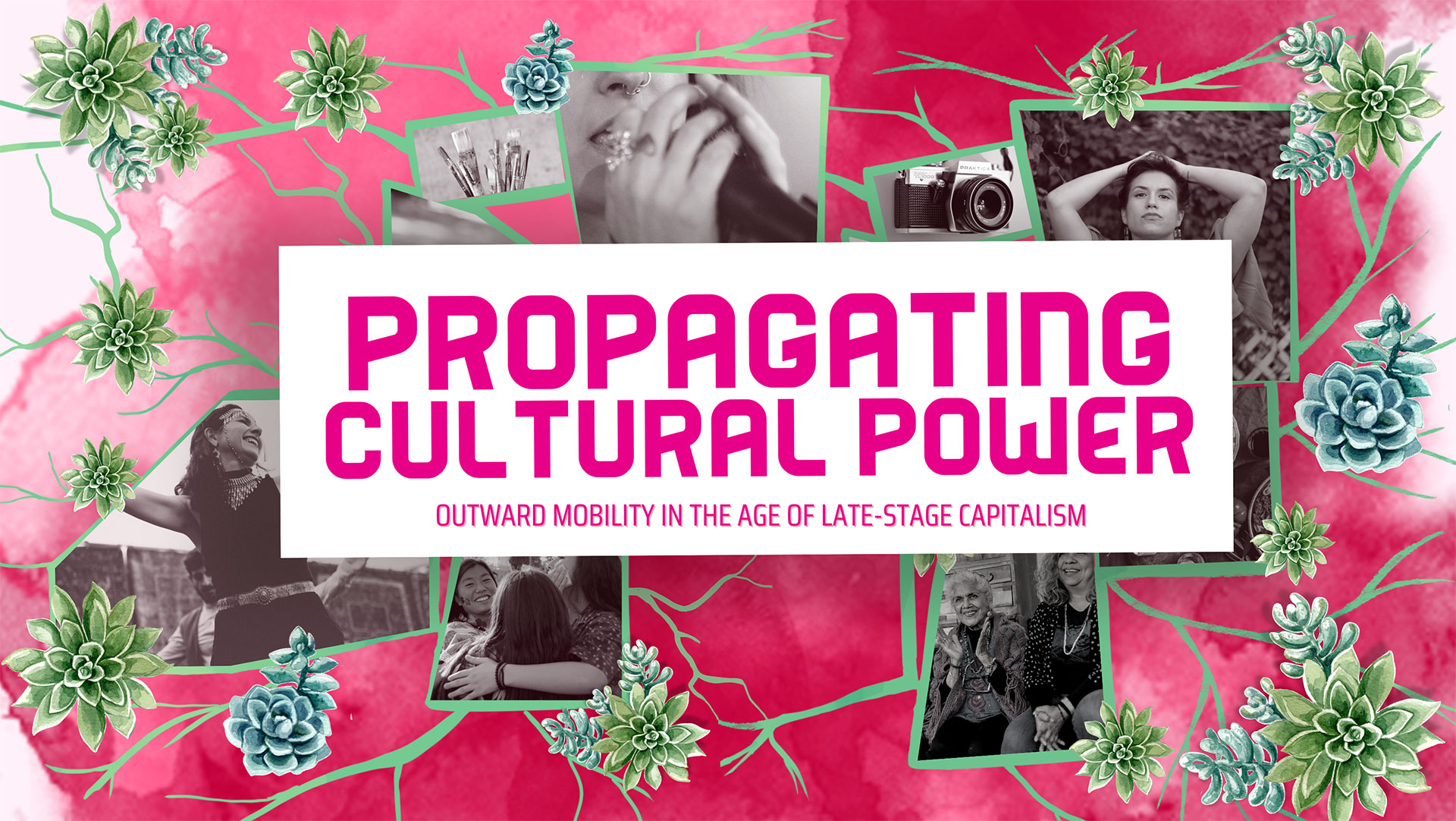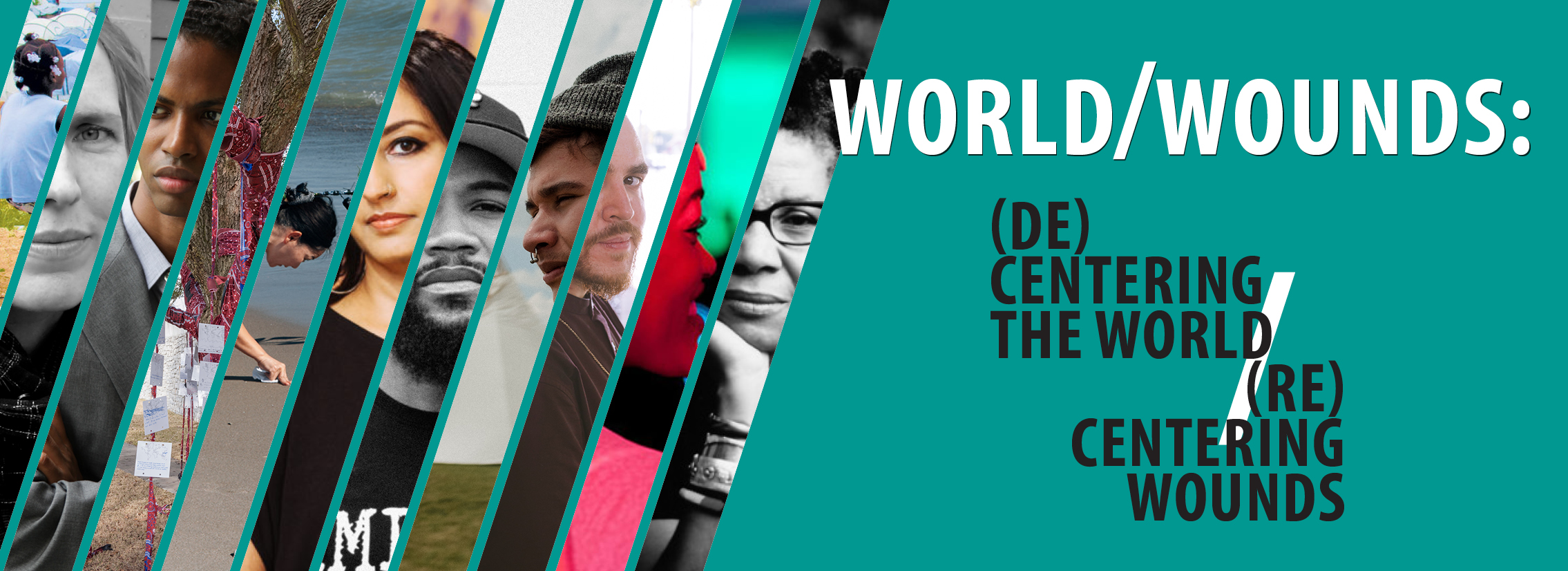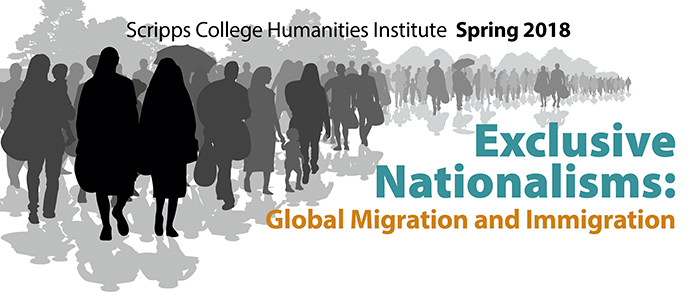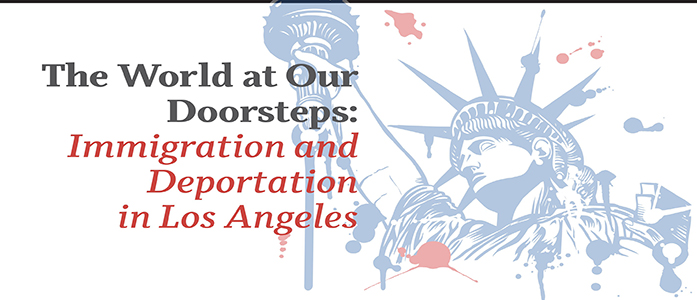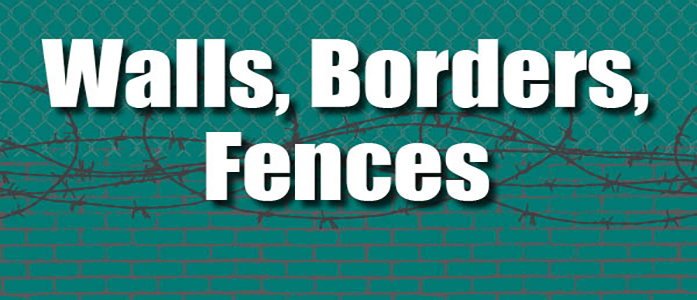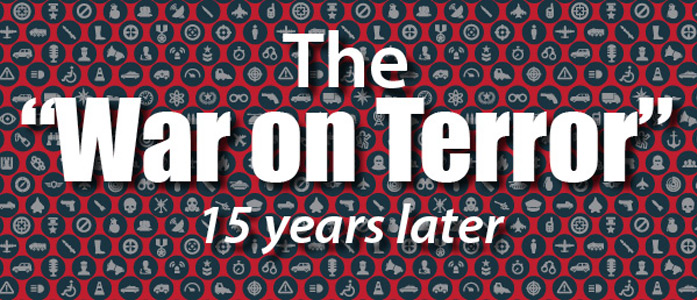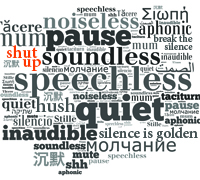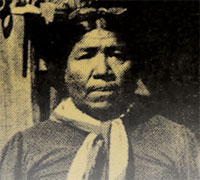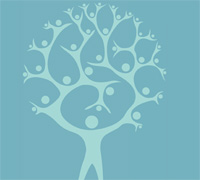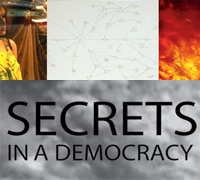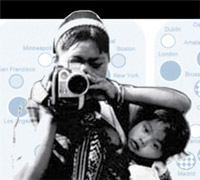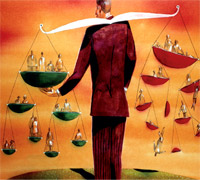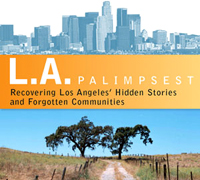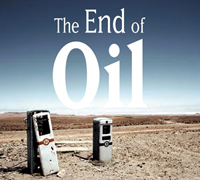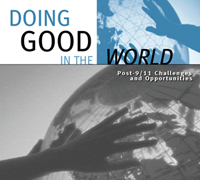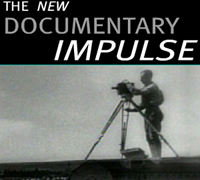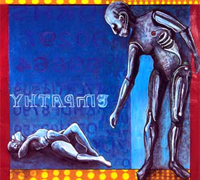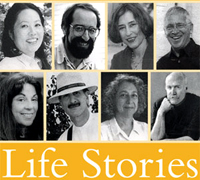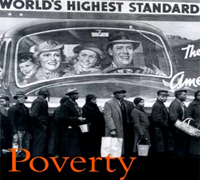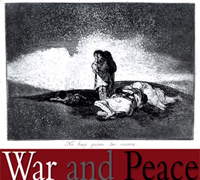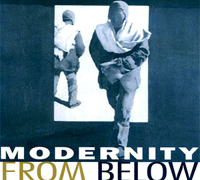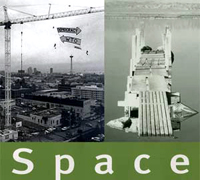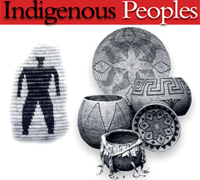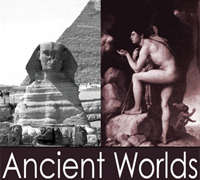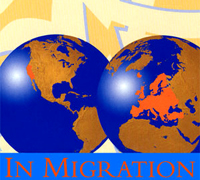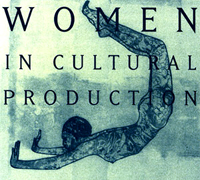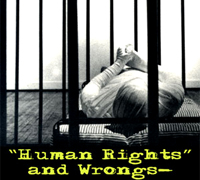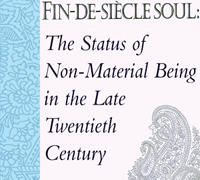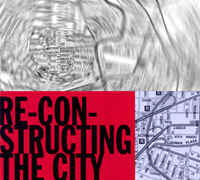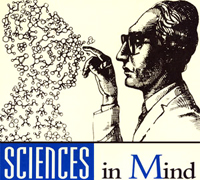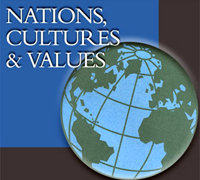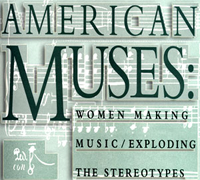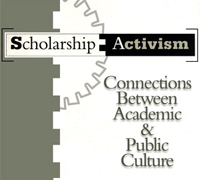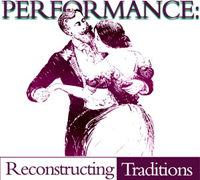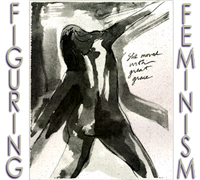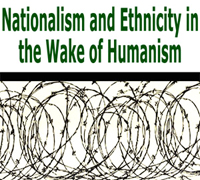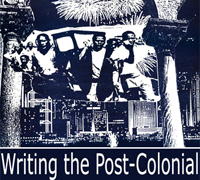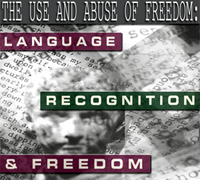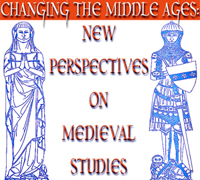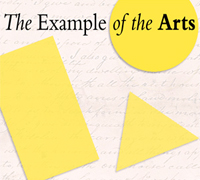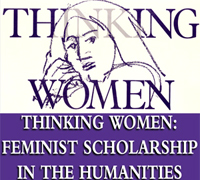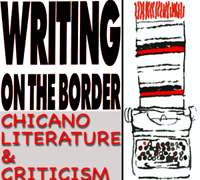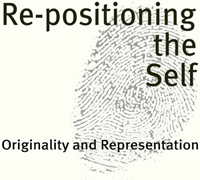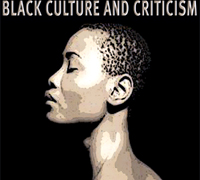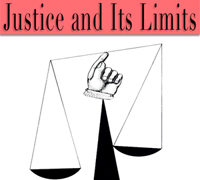Program Archive
In this time of great isolation, fear and strife, social tools that offer deep human connection is our superpower and road to healing. Art and Culture in its many shapes and forms is the key to reinstating a deep connection among us as people regardless of cultural and racial divides. In our ...
read more
For this year's Humanities Institute, we will focus on important ideas, arguments, and concepts from outside of Europe and European influence. The aim is to broaden what we take to be “foundational” in the history of thought, beyond those typically (though not universally) emphasized in the ...
read more
For this year's Humanities Institute, we will focus on important ideas, arguments, and concepts from outside of Europe and European influence. The aim is to broaden what we take to be “foundational” in the history of thought, beyond those typically (though not universally) emphasized in the ...
read more
(Re)Centering the World: Examining the nature of well-documented disasters—genocide, earthquakes, hurricanes, climate change—and how they are being negotiated in the present day.
How might we institute better, more humane and humanistic responses to disasters, whether natural or ...
read more
(De)Centering the World: How communities persist beyond and despite historical or natural setbacks to build hopeful, collective visions for the future.
How might we institute better, more humane and humanistic responses to disasters, whether natural or man-made? How might we engender more ...
read more
Information is more accessible to more people than ever. Yet, one of the central concerns in the public consciousness today is that we seem especially susceptible to deceit and manipulation via our sources of information, including both the internet in its various forms and more traditional news ...
read more
In the 2018–19 academic year—and teaming up with Scripps Presents in the fall semester—the Humanities Institute will present a series of events, lectures, and workshops on Ignorance in the Age of Information. Information is more accessible to more people than ever. Yet, one of the ...
read more
Anti-immigration rhetoric and nativist policies are in full-throated advance in Europe and the United States. Immigrants are often characterized as civilizational threats to Western democracies by white nationalists, who not only represent a large voting block in France, Germany, and other ...
read more
read more
The spring 2017 theme for the Humanities Institute "Walls, Borders, Fences" interrogates the relationships between social, spatial, and political divisions in a variety of historical and geographic contexts. These contexts include the United States, the U.S. borders with both Mexico and ...
read more
September 2016 marks the fifteen-year anniversary of the al-Qaeda attacks on the World Trade Center and Pentagon, and U.S. President George W. Bush's declaration that the United States was now engaged in a global "war on terror." While President Barack Obama later moved away from that phrasing, ...
read more
In fall 2015, The Humanities Institute sought to address and confront some of the devastating effects of intersecting forms of violence committed against people of marginalized identities in contemporary United States. In spite of these crises, there are people doing tremendous work of ...
read more
"We are confronted with the fierce urgency of now. In this unfolding conundrum of life and history, there is such a thing as being too late. This is no time for apathy or complacency. This is a time for vigorous and positive action." Dr. Martin Luther King Jr. (1967)
How shall we live in ...
read more
Who do you think you are? In spring 2015, the Humanities Institute presents a series of events, lectures, and workshops examining one of the most important and interesting topics: me. Or, rather: the concept of self.
We will peer through a multidisciplinary, multimedia, ...
read more
Is silence the absence of sound? Is it the space between words, a pause between heartbeats? Is silence a refusal to speak — or to respond? Is silence collaborative, complicit? Is it pleasant, peaceful? Contemplative? Is meditation a form of silence? Does silence signify absence? Does it ...
read more
In spring 2014 the Humanities Institute explores multiple feminist narratives and trajectories, addressing the intersections of gender, ethnicity, race, power, and social justice within and beyond the academy.
We live in a society where challenges to affirmative action continue 90 years ...
read more
Food production, distribution, and consumption in contemporary U.S. society remain problematic. The logic of capitalism and modernity has institutionalized factory farming; the legacy of colonialism and the more recent phenomenon of globalization have cast a long shadow on the production, ...
read more
Music and dance are basic elements of ritual and belief across the globe, valued for their capacity to communicate through both physical and spiritual realms; they fuse action and thought in unique ways, enhancing our senses, transforming our emotional and physical states, our relationships with ...
read more
Digital media have saturated and accelerated society, compressing our sense of time and geography in ways that are both radical and unexpected. As computing technologies become smaller, cheaper and mobile, people from across the globe are interacting at unprecedented speeds with unprecedented ...
read more
Continuing invasion is the process many Native people use to characterize their historic and present realities. Since the first wave of Europeans landed on American shores, indigenous peoples have endured all manner of physical, material, and psychological brutalities. Yet some of the ...
read more
Performance and creation of the body within socio-cultural power relations invite a critical gaze at how cultural narratives and categories enliven debates concerning purpose, meaning and intention. Public spectacle and the visual and performing arts can be powerful elements in the creative ...
read more
Critical views of higher education seem to agree on the need to, at the very least, enable people, especially the young, to use their minds to capacity, and at best, prepare citizens to participate in a democracy. It is also generally agreed that education, and to some the education of women, is ...
read more
What does it mean to be engaged mind, body and soul? Some call it being in the "flow," others describe it as living life to the fullest. But what is the process by which engagement occurs? Does it require the right interaction of emotions, skills, and faith? Among the topics to be examined are ...
read more
What signifies kinship, and what does kinship signify?
At one time, the prevailing view in American and European societies — and American and European social science — was that families were formed on the basis of "blood and marriage". In recent years, the limits of this view of ...
read more
Bound up in such concepts as sacredness, intimacy, danger and the forbidden, secrecy is something familiar to all of us. Commonly we perceive secrets as guilty, conspiratorial, or pathological, forgetting that secrets can also protect our identity, intentions, actions, and property. As ...
read more
The veil, honor killings, and female genital mutilations are now commonly seen, in the West, as signs of Muslim women's oppression. And Muslim women's liberation has served as a justification for interventions in the War on Terror. But this is not new. Since the days of British colonialism, the ...
read more
To understand media today and in the future one must begin by looking at the global system, then take into account national and local differences. Theories of globalization are one way to understand this global media system where incessant pursuits for profit have pushed for deregulation and ...
read more
At the start of the 21st century, we find ourselves on the threshold of a new age in which rapidly converging biosciences and technologies (genomics, genetic engineering, cloning, stem cell research, artificial reproduction, neurotechnologies, artificial intelligence, robotics, information ...
read more
In the fall of 2007, the Humanities Institute will present a lecture series and a documentary film series to explore the causes and consequences of the rapid increase in income and wealth inequalities in the United States since 1980. This widening gap between the rich and the poor has made of ...
read more
Los Angeles has always imagined itself as the city of the future. By embracing rapid economic development, relentless expansion and suburban sprawl, by relying completely on the automobile and mobility, and by choosing fantasy and myth over reality and history, L.A. has been a unique—and ...
read more
To help us understand what a post-oil age may look like, we are inviting energy analysts, economists, geologists, journalists, scientists and environmentalists, as well as political scientists to discuss with us the impact of the end of oil on the global economy, on the world's geopolitical ...
read more
One of the most important lessons of 9/11 may well be that the problems of the world are ours too. Beyond terrorism, the world faces enormous challenges: global poverty; the HIV/AIDS pandemic and the spread of other infectious diseases; the proliferation of nuclear weapons; environment ...
read more
Once marginal, documentary cinema and documentary photography have joined documentary writing such as investigative journalism, as reality-driven modes of representation that bear witness to our times and help us understand and define our historical moment. Throughout the semester, we will try ...
read more
In the spring semester of 2005, the Scripps College Humanities Institute program will focus on Empathy. What does it mean to feel (or think) as another? When we consider the structure and obligations of social relationships, ourselves and others, justice and equality, reason, emotion, and values ...
read more
In the fall semester of 2004, the Scripps College Humanities Institute will be holding a semester-long program exploring the connections of knowledge, information, and politics. Our approach will be interdisciplinary and, we hope, wide-ranging, including such topics as the way information is ...
read more
Why are memoirs and biographies so popular? Why do we want to read them? Why do people want to write them? What do these works tell us about individuals and about time and place, narrative and identity? Throughout the semester, we will examine different examples of life writing, including ...
read more
In the fall of 2003, the Scripps College Humanities Institute will be holding a semester-long program on "Poverty." Throughout the term, we hope to address a number of issues involving the history of poverty and poor relief, social policy and social activism, narratives of inequality and the ...
read more
In the spring semester of 2003, the Humanities Institute at Scripps College will sponsor three symposia on "Biopowers: Disease, Ethics, Activism." Throughout the semester, we hope to address a number of issues involving the intersection of science, medicine and the humanities. The themes that we ...
read more
In the fall semester of 2002, the Humanities Institute at Scripps College will sponsor a series of symposia and a small conference on the general topic of "War and Peace." We hope to address a number of issues throughout the semester, including the problems of violence, conflict, revolution, ...
read more
The conference, Modernity from Below, to be held in early April, 2002, will bring together historians and cultural critics from a variety of fields and historical periods, ranging from the eighteenth century Atlantic and Caribbean circuits of trade and colonizationÑthe crucible of ...
read more
The Scripps College Humanities Institute's fall 2001 program, New Social Geographies and the Politics of Space, will be devoted to the study of new social geographies, including the contemporary formation and uses of public space, the public sphere and new or alternative media, ...
read more
Indigenous Peoples. First Peoples. Native Americans. American Indians. Aboriginals. Under many imposed and mostly inappropriate names, the peoples who inhabited vast areas of the globe before European arrival and conquest have survived genocide, dispossession, dislocation, reservations and every ...
read more
In the fall of 2000 the Scripps College Humanities Institute will devote a semester to the study of Ancient Worlds. The series of events will take up a number of issues, including new approaches to the classics, questions of gender, sexuality and religion in the ancient world, and the relation ...
read more
This conference will bring together scholars, activists and politicians from both Europe and the United States for a comparative examination of the effects of immigration policies in the United States and Europe. Migration issues will be addressed not only from the perspective of the ...
read more
Women in Cultural Production is a series of events designed both to present work by women in various fields of culture and to explore a number of questions about gender and culture. How does the increasing prominence of women as producers of culture affect our understanding of cultural ...
read more
"We are conceived as twins, and, most of us, born single... Acts and images of doubling start here, at the root of our lives: our flesh and blood, our coming to be. In an epoch proud of instant copiers but perturbed by errant copies, delighted with lightweight artificial limbs but disturbed by ...
read more
The challenge to think clearly, but humanely about justice in general and human rights issues in particular has never been greater. During this semester we will explore recent debates over critical race theory, economic justice, international rights issues, citizenship, the right to an ...
read more
What are scientists, mathematicians, political activists, literary theorists, philosophers, artists, musicians, and poets saying today about the validity of religion as a social and spiritual practice and a way of understanding the world? Too often it has been assumed that the university as an ...
read more
"You try to feel the city's pulse in the neighborhoods, the energy clotted or flowing through arterials, often leading to extremities from no clear heart; city bureaus are organs; city history is tracked in old blood, new blood, spilled blood, blue blood, transfusions of capital in times of ...
read more
This spring the Scripps College Humanities Institute explores recent research concerning the relationship between mental phenomena and physical mechanisms and states. We have called this semester "Sciences in Mind" to draw attention to recent debates within the sciences about such matters as the ...
read more
This fall the Scripps College Humanities Institute explores the legacy of Victorianism as it relates to our present-day concerns. The lectures, seminars, photography exhibition, symposium and theatrical performance will help us think about the various ways in which our contemporary world remains ...
read more
This spring the Scripps College Humanities Institute is sponsoring a series of lectures and seminars around the theme of Nations, Cultures, and Values. During the semester we will investigate the ways in which the central commitments of nations and cultures are represented in, as well ...
read more
This fall the Scripps College Humanities Institute is sponsoring a symposium, and a series of lectures and performances on the role of contemporary music in American society.With the theme Music: Culture in Question/Cultures in Dialogue, we will examine the ways in which diverse ...
read more
This spring a series of workshops, seminars, and lectures explore the connections between work in the humanities and political engagement. Our program aims to show students and teachers ways of connecting campus and community life. We will explore possibilities of making new connections and of ...
read more
The Scripps College Humanities Institute is sponsoring a series of events around the theme of Performance: Reconstructing Traditions. The lectures, seminars, workshops, and performances will make connections between contemporary trends in the humanities and the theory and history of ...
read more
Figuring Feminism at the Fin de Siecle will examine the theoretical practical issues facing feminism in the 1990s. How are the recent understandings of feminist theory, identity and performance relevant to the economic, social and political challenges facing women at the end of the ...
read more
Nationalism and Ethnicity in the Wake of Humanism will examine how nationalism and ethnicity have affected the ways cultures develop and interact with one another. We shall discuss how humanism has provided ways of understanding nationalism and ethnicity, and how they in turn have ...
read more
Writing the Post-Colonial will examine the way in which cultures live with, against and beyond the legacies of political, cultural and economic domination. Attentive to the diversities of post-colonial experience, the papers will critically examine theoretical concerns and offer ...
read more
The theme, The Use and Abuse of Freedom, allows for a range from anthropology to art, from philosophy to prisons, from law to transgression. Most of our speakers will give seminars for faculty and advanced students as well as public lectures, and we will often be hosting ...
read more
Changing the Middle Ages will bring together scholars from a variety of disciplines who are refashioning the ways we view the medieval period. How are marriage and sexuality related on the margins and in the center of society? How does poetry in the period represent men and women and ...
read more
The Example of the Arts, sponsored by the Scripps College Humanities Institute, is a series of readings, screenings, and seminars which will explore ways in which artists take up in their work examples of their own and of other arts. The series will include discussions of a number of ...
read more
The Humanities Institute is inviting six scholars to discuss the ways feminist scholarship has affected the disciplines of history, literary studies, and philosophy. Past or current work of each of the scholars either is exemplary of feminist scholarship in her discipline or is sympathetically ...
read more
The conference Writing on the Border is one of a series of events which the Scripps College Humanities Institute is sponsoring to celebrate the twentieth anniversary of the founding of the Chicano Studies Program at The Claremont ...
read more
A conference exploring conceptions of the self in modern and postmodern works of art and in contemporary political theory and science—from George Cukor's Gaslight to the photographs of Diane Arbus, from Thomas Pynchon's Gravity's Rainbow to Paule ...
read more
The general topic of the lectures, conferences, and films sponsored by the Humanities Institute this term is "Marginality". Our speakers will address various aspects and consequences of the ways that societies—not just political societies, but societies like the academic community—in the ...
read more
"History And..." will be a conference that illuminates the various ways in which history informs some of the crucial aspects of contemporary culture and our attempts to understand it. "History And..." takes place at a time of critical importance for our understanding of how consciousness of and ...
read more
Justice and Its Limits will examine the various ways in which thinking about justice has affected and been affected by recent work in the humanities. The conference will focus on how an understanding of just judgment informs or is ignored in politics, cultural criticism and some ...
read more


